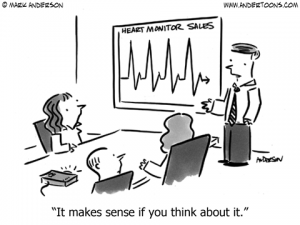Equifax, a credit company which handles private information is experiencing fallout from failing to adequately secure information. The company’s problem began in March 2017 when a hacker managed to enter the system.
The company detected the breach July 2017 and notified the public September 7th. Why did it take two months to learn personal data was compromised? According to CBS news, Equifax executives sold nearly $1.8 million of company shares before disclosing the breach. How is this fair, ethical and equitable? To me, this is alarming; those who purchased the shares were scammed. Consequences have yet to be decided because “Canada’s privacy laws do not specify the measures” (Ligaya, 2017, para 17 ) it takes once being hacked. Companies responsible for sensitive data must have a duty of care to those whose information they hold.
Through my research the Equifax fiasco is a people problem, not purely a system problem. Equifax neglected to implement sufficient safety precautions. Weak internal controls such as poor supervision, documentation and lax security lead to loss of critical information. Equifax should have reacted to the breach as Canada Revenue Agency did when its system was hacked in March 2017. CRA instantly shut systems down, identified and fixed the security rupture and quickly restored operations. These proactive steps, perhaps unprofitable at the time, dealt responsibly with the issue. Dissimilarly, Equifax waited two months to react and inform the public; unacceptable as customers identities and finance were at risk.
Large companies like Equifax are not worried when fined $100,000; the fine is inconsequential compared to their billion dollar revenues. I believe the government needs to devise strategies to regulate and adequately fine companies entrusted with valuable personal information. To source exactly where the problems rooted and aim to fix the following results, Equifax could have used business tools like the Fishbone diagram or the urgency/importance grid to identify and highlight possible causes or actions to the situation. Data companies should have plans to prevent or at least mitigate such disasters. Ethical decision making directs companies away from issues such as breaches and fraud. If Equifax had identified and disclosed the issue, analyzed exactly what went wrong and recommended positive actions to take, the company could have minimized the extent of the damage. Consumers now need to be vigilant while viewing their statements and charges. Problems and mistakes are inevitable, it is how a company deals with them that defines it. I hope the market and consumers will ensure Equifax is penalized for its inability to protect data as regulators, at present, do not have tools to do so.
Word Count: 423
References:
Bouw, B. (2017, September 21). The latest: What you need to know after the Equifax security breach. From https://beta.theglobeandmail.com/globe-investor/personal-finance/household-finances/the-latest-what-you-need-to-know-after-the-equifax-security-breach/article36323162/?ref=http%3A%2F%2Fwww.theglobeandmail.com&%29
Braga, M. (2017, March 14). What you need to know about Canada Revenue Agency’s ‘internet vulnerability’. From http://www.cbc.ca/news/technology/canada-revenue-agency-cra-internet-vulnerability-bug-apache-struts-2-1.4023838
CBS. (2017, September 08). Equifax executives sold $1.8 million in stock after breach. From https://www.cbsnews.com/news/equifax-breach-executives-sold-1-8-million-in-stock/
Cuban, P. (2017, September 24). Intro to case methodology. From https://vimeo.com/48866088
Finkle, J. (2017, September 21). Equifax says server first compromised on March 10. Fromhttps://www.reuters.com/article/us-equifax-cyber/equifax-says-server-first-compromised-on-march-10-idUSKCN1BW05X
Kerner, S. M. (2017, September 22). Equifax data breach fallout continues as lawsuits are filed. From http://www.eweek.com/security/equifax-data-breach-fallout-continues-as-lawsuits-are-filed
Ligaya, A. (2017, September 18). Equifax to reveal Canadian impact of data breach this week as executives face insider trading probe. (Image) From https://www.thestar.com/business/2017/09/18/hacked-equifax-executives-face-insider-trading-probe.html


